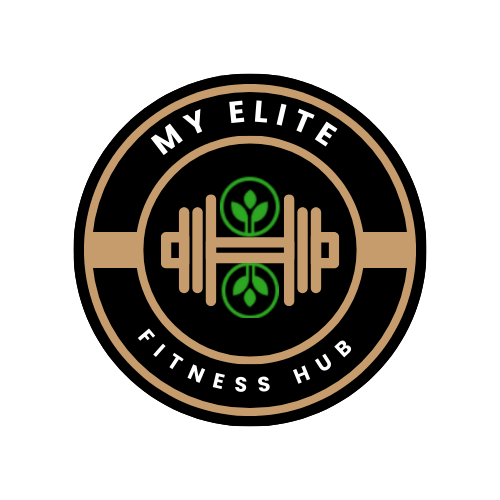
5 Important Nutrient Intakes For Your Health
In the quest for optimal health and fitness, we often focus intensely on macronutrients—proteins, carbohydrates, and fats—while overlooking critical micronutrients that serve as the foundation for virtually every bodily function. At My Elite Fitness Hub, we believe that true wellness comes from a comprehensive approach to nutrition that addresses these essential nutrients your body needs to thrive, not just survive.
While there are dozens of vital nutrients your body requires, research consistently highlights certain key players that have profound impacts on overall health, athletic performance, and longevity. Understanding and optimizing these nutrients can dramatically improve your energy, recovery, cognitive function, and even your body composition results.
Let’s explore five of the most influential nutrients that deserve special attention in your wellness journey.
1. Vitamin D: The Sunshine Nutrient That Powers Performance
Often called the “sunshine vitamin,” Vitamin D functions more like a hormone in the body, influencing hundreds of biological processes essential to health and athletic performance.
Why It’s Critical:
- Muscle Function: Directly impacts muscle protein synthesis, strength, and power output
- Bone Health: Facilitates calcium absorption and bone mineralization
- Immune Regulation: Modulates immune response and reduces inflammation
- Hormonal Optimization: Supports healthy testosterone and estrogen levels
- Mood Regulation: Influences serotonin production and mental wellbeing
Deficiency Warning Signs:
- Unusual fatigue and weakness
- Prolonged muscle soreness after workouts
- Frequent illness or infections
- Bone pain or stress fractures
- Low mood or seasonal depression
Research indicates that up to 42% of Americans are deficient in Vitamin D, with athletes and fitness enthusiasts often showing surprisingly low levels despite their health-conscious lifestyles.
Optimal Intake Strategies:
- Sunshine Exposure: 15-30 minutes of midday sun exposure to exposed skin
- Food Sources: Fatty fish (salmon, mackerel), egg yolks, fortified foods
- Supplementation Consideration: 1,000-5,000 IU daily based on blood levels
- Timing Tip: Take with fatty meals to enhance absorption
- Testing Recommendation: Check blood levels twice yearly to optimize dosage
2. Magnesium: The Master Mineral for Recovery and Relaxation
Magnesium participates in over 600 enzymatic reactions in your body, making it essential for virtually every aspect of health, particularly muscle function and recovery.
Why It’s Critical:
- Energy Production: Required for ATP synthesis (your body’s energy currency)
- Muscle Contraction and Relaxation: Prevents cramping and facilitates recovery
- Protein Synthesis: Supports the building of new muscle tissue
- Nervous System Function: Regulates neurotransmitters and stress response
- Sleep Quality: Promotes deeper, more restorative sleep cycles
Deficiency Warning Signs:
- Muscle cramps or twitches, especially at night
- Persistent fatigue despite adequate rest
- Poor recovery between training sessions
- Heightened stress response or anxiety
- Insomnia or restless sleep
Studies show that approximately 50% of Americans consume less than the recommended amount of magnesium, with athletes losing additional amounts through sweat.
Optimal Intake Strategies:
- Food First Approach: Dark leafy greens, nuts, seeds, legumes, dark chocolate
- Targeted Supplementation: 300-400mg daily for most adults
- Form Matters: Magnesium glycinate or threonate offer superior absorption
- Timing Consideration: Evening consumption supports sleep quality
- Stress Connection: Increase intake during periods of high physical or psychological stress
3. Omega-3 Fatty Acids: The Anti-Inflammatory Foundation
These essential fatty acids cannot be produced by your body but play crucial roles in controlling inflammation, supporting brain function, and enhancing recovery.
Why They’re Critical:
- Inflammation Regulation: Balance the pro-inflammatory effects of omega-6 fatty acids
- Cell Membrane Integrity: Maintain fluidity and function of all cell membranes
- Cardiovascular Health: Support healthy blood pressure and vascular function
- Brain Performance: Enhance cognitive function, focus, and mood stability
- Joint Health: Reduce exercise-induced joint pain and stiffness
Deficiency Warning Signs:
- Excessive post-workout inflammation and soreness
- Dry skin, brittle nails, or lackluster hair
- Poor concentration or memory issues
- Persistent joint discomfort
- Heightened inflammatory markers in bloodwork
The standard American diet provides an omega-6 to omega-3 ratio of approximately 20:1, whereas optimal health requires closer to 4:1 or even 1:1.
Optimal Intake Strategies:
- Food Sources: Fatty fish (salmon, sardines, mackerel), walnuts, flaxseeds, chia seeds
- Supplementation Guidelines: 1-3g combined EPA/DHA daily for active individuals
- Quality Considerations: Third-party tested products to ensure purity
- Rancidity Prevention: Store supplements and omega-3 rich foods properly
- Bioavailability Enhancement: Take with fatty meals to improve absorption
4. Vitamin B12: The Energy and Recovery Catalyst
This water-soluble vitamin plays essential roles in energy production, nerve function, DNA synthesis, and red blood cell formation—all critical for athletic performance and recovery.
Why It’s Critical:
- Energy Metabolism: Required for converting food into usable energy
- Oxygen Transport: Essential for healthy red blood cells that deliver oxygen
- Nervous System Function: Maintains myelin sheath that protects nerve fibers
- DNA Synthesis: Supports cellular reproduction and repair after exercise
- Cognitive Performance: Influences focus, mental energy, and mood
Deficiency Warning Signs:
- Profound fatigue unrelated to training volume
- Weakness or lightheadedness during workouts
- Numbness or tingling in extremities
- Poor workout recovery despite adequate rest
- Mood changes or “brain fog”
While clinical deficiency is relatively rare in the general population, subclinical insufficiency is common, particularly among plant-based eaters, adults over 50, and those with digestive issues.
Optimal Intake Strategies:
- Animal-Based Sources: Meat, fish, eggs, dairy products
- Plant-Based Considerations: Nutritional yeast, fortified foods, reliable supplementation
- Absorption Enhancers: Adequate stomach acid and intrinsic factor
- Form Recommendations: Methylcobalamin or adenosylcobalamin forms
- Testing Approach: Consider both serum B12 and methylmalonic acid for accurate assessment
5. Iron: The Oxygen Delivery Optimized
As a component of hemoglobin, iron plays an irreplaceable role in transporting oxygen to working muscles—a function that directly impacts endurance, strength, and overall energy.
Why It’s Critical:
- Oxygen Transportation: Essential component of hemoglobin in red blood cells
- Energy Production: Required for ATP synthesis in mitochondria
- Metabolic Function: Supports thyroid hormone production and metabolism
- Immune Function: Necessary for proper immune cell development
- Cognitive Performance: Maintains optimal brain oxygenation and function
Deficiency Warning Signs:
- Unusual fatigue during workouts and daily activities
- Declining performance despite consistent training
- Shortness of breath during previously manageable exercise
- Cold intolerance or feeling chilled
- Pale skin, especially inside lower eyelids
Iron deficiency is the most common nutritional deficiency worldwide, affecting up to 30% of female athletes and 8% of male athletes, often without full awareness.
Optimal Intake Strategies:
- Animal Sources: Red meat, organ meats, oysters (high bioavailability)
- Plant Sources: Lentils, spinach, tofu, quinoa (pair with vitamin C for better absorption)
- Absorption Enhancers: Vitamin C-rich foods consumed with iron sources
- Absorption Inhibitors: Avoid coffee, tea, calcium supplements within 2 hours of iron intake
- Supplementation Caution: Only supplement based on blood test results, as excess iron can be harmful
Strategic Implementation For Maximum Benefit
Rather than attempting to address all nutrients simultaneously, consider this strategic approach:
Step 1: Assessment
- Blood Testing: Comprehensive panel including vitamin D, iron studies, B12, magnesium
- Symptom Evaluation: Note any signs of deficiency mentioned above
- Dietary Analysis: Review current intake of these nutrients through food
- Performance Review: Identify areas where nutrient status may be limiting results
Step 2: Prioritization
- Address Most Critical First: Focus on severe deficiencies indicated by testing
- Consider Training Goals: Emphasize nutrients that support your specific activities
- Seasonal Adjustment: Prioritize vitamin D during winter months
- Recovery Enhancement: Focus on magnesium and omega-3s during intense training blocks
Step 3: Implementation
- Food-First Mentality: Optimize diet to include natural sources of these nutrients
- Strategic Supplementation: Add targeted supplements where dietary intake falls short
- Proper Timing: Consume nutrients at optimal times for absorption and effect
- Quality Sourcing: Choose high-quality, bioavailable forms of supplements when needed
Step 4: Monitoring and Adjustment
- Retest Periodically: Check levels every 3-6 months when correcting deficiencies
- Track Subjective Markers: Energy, recovery, sleep quality, and performance
- Adjust Seasonally: Modify strategy based on training cycles and seasonal factors
- Fine-Tune Dosages: Optimize amounts based on individual response
The Synergistic Effect: Greater Than The Sum of Parts
While we’ve explored these five nutrients individually, the most powerful benefits come from their synergistic interactions:
- Vitamin D and Magnesium: Magnesium is required for vitamin D activation and utilization
- Iron and Vitamin B12: Both work together for optimal red blood cell production
- Omega-3s and Vitamin D: Both modulate inflammation and immune function
- Magnesium and Iron: Both support energy production in different, complementary ways
- B12 and Iron: Collaborate in the formation of healthy red blood cells
This interconnectedness highlights why addressing individual nutrients in isolation often yields limited results, while a comprehensive approach creates transformative outcomes.
Beyond Fitness: Whole-Life Benefits
Optimizing these five key nutrients extends benefits far beyond the gym:
- Longevity Support: Each plays roles in cellular health and age-related disease prevention
- Cognitive Enhancement: Brain function improves with adequate levels of all five nutrients
- Emotional Wellbeing: Mood stability and stress resilience are supported
- Sleep Quality: Deeper, more restorative sleep becomes more consistent
- Immune Function: Balanced immune response with reduced inflammation
At My Elite Fitness Hub, we believe that nutrition forms the foundation upon which all other health and fitness goals are built. By ensuring optimal intake of these five crucial nutrients, you create the physiological environment for peak performance, efficient recovery, and long-term wellness.
Remember that nutritional needs are highly individual, influenced by your unique biochemistry, training demands, and health history. Consider working with qualified healthcare providers to assess your specific requirements and develop a personalized optimization strategy.
What nutrient will you focus on optimizing first in your journey toward peak health and performance?

0 Comments